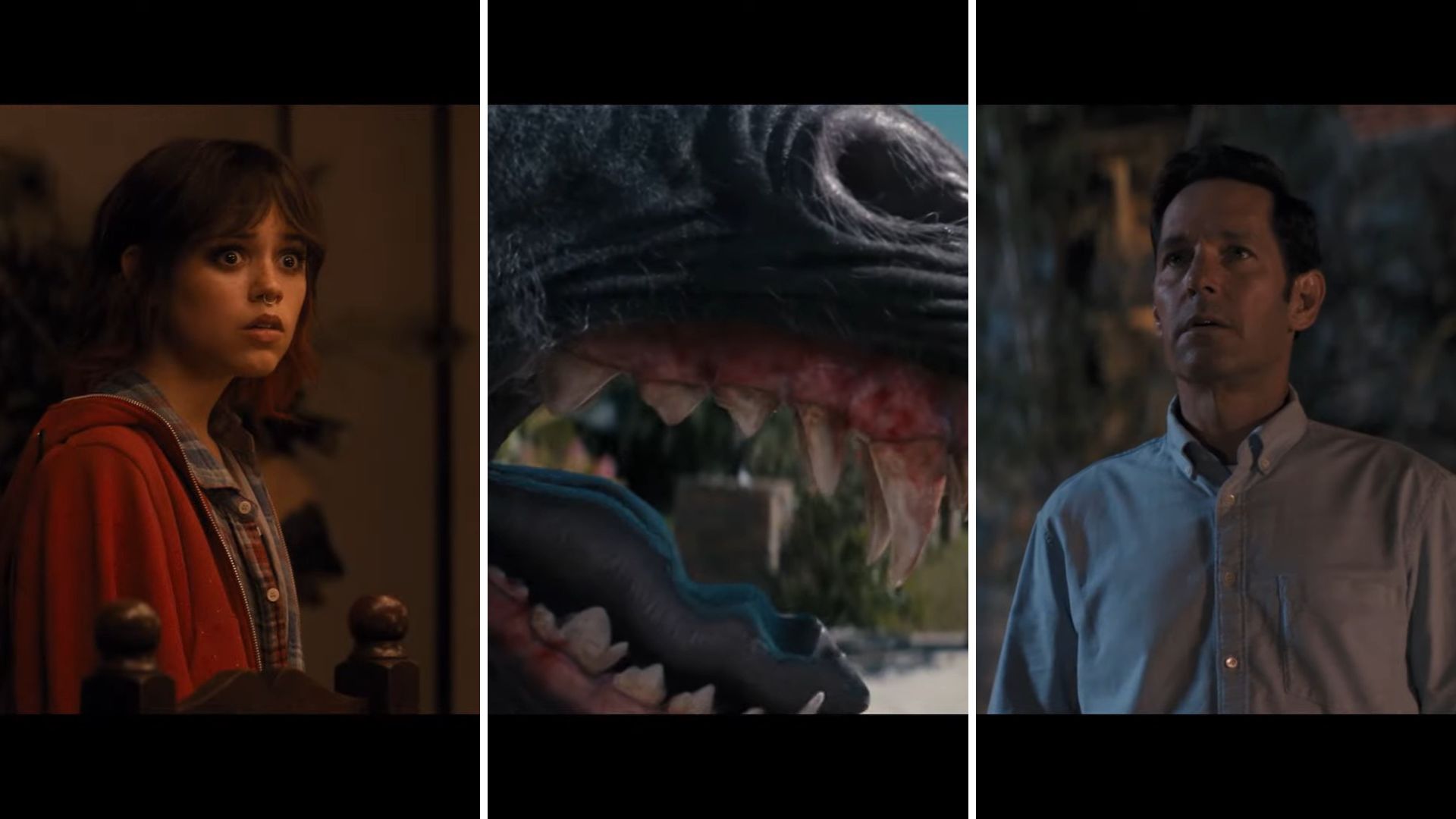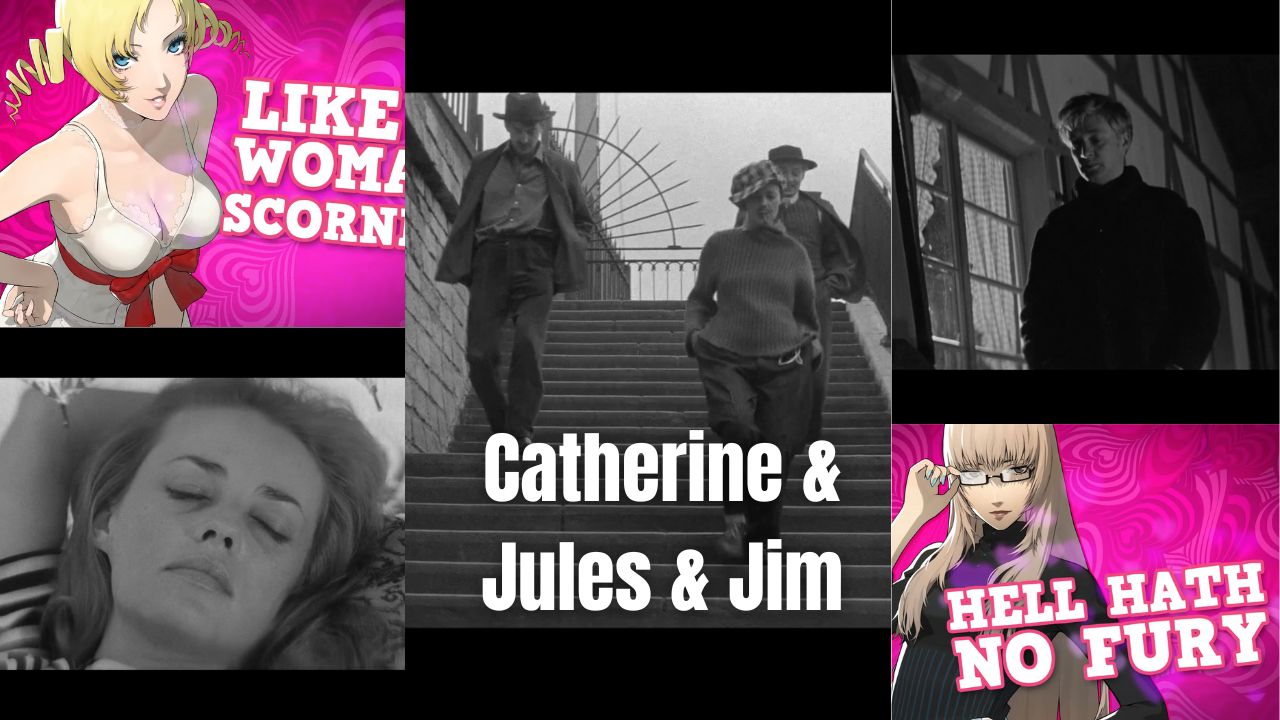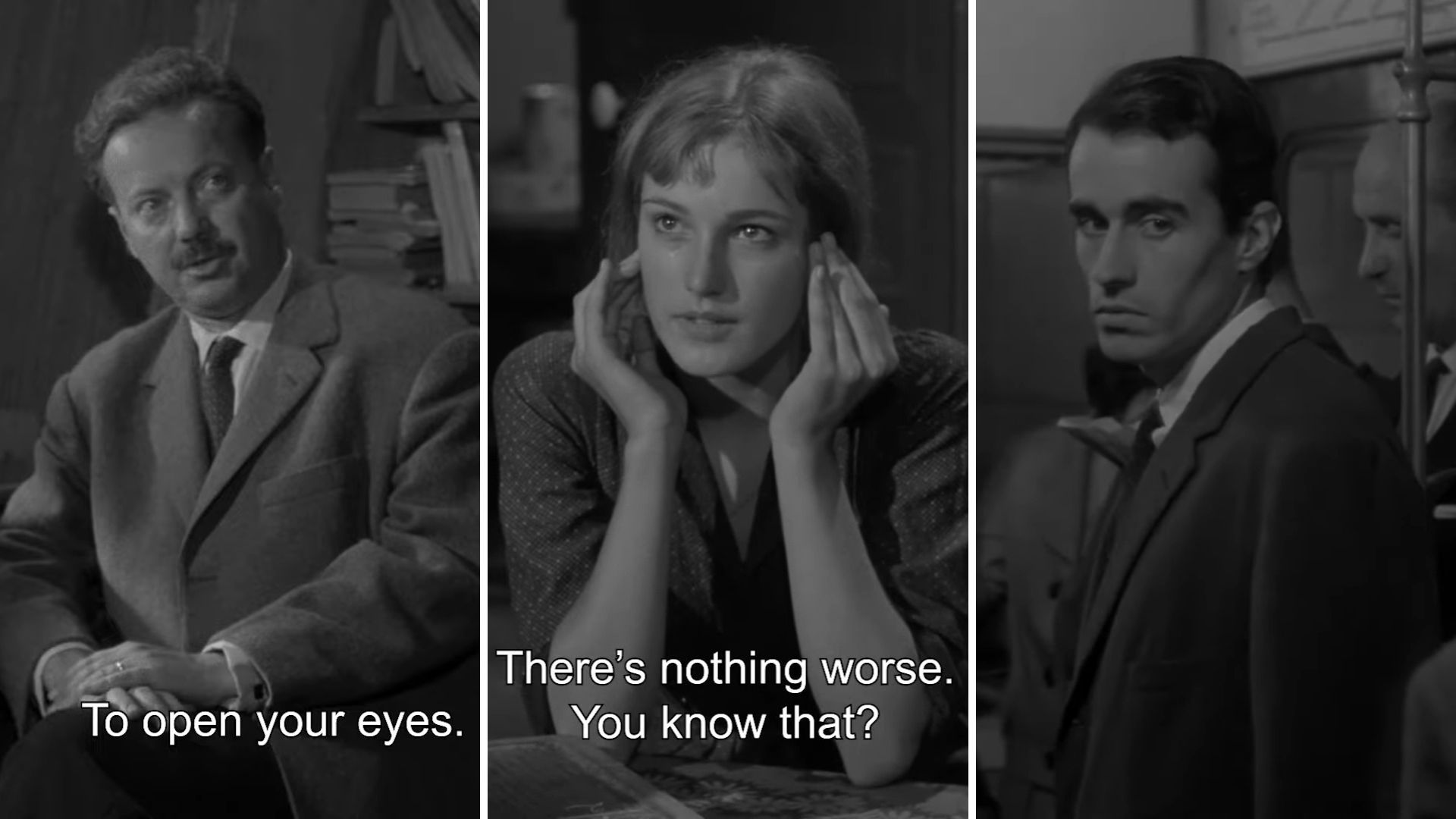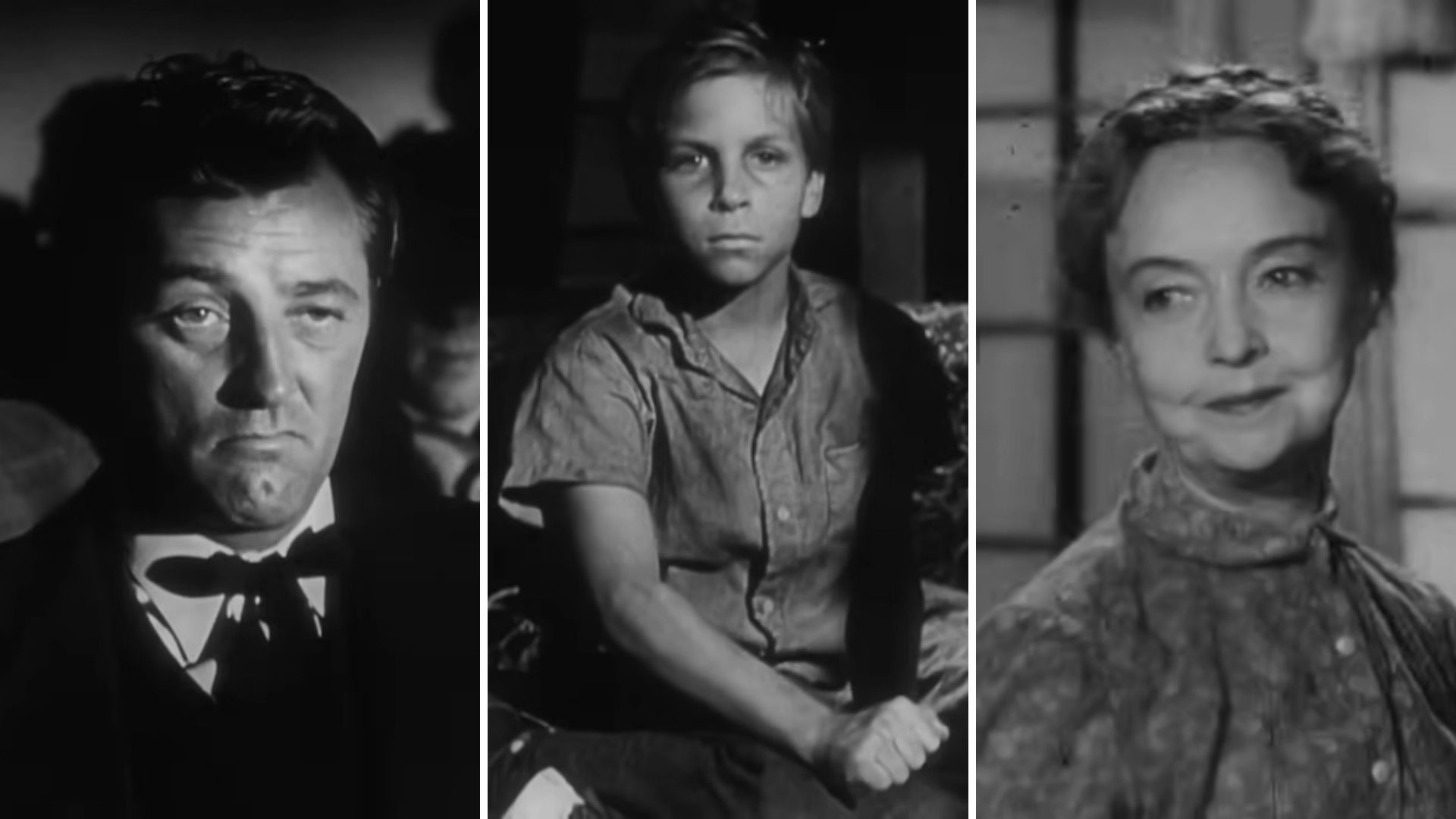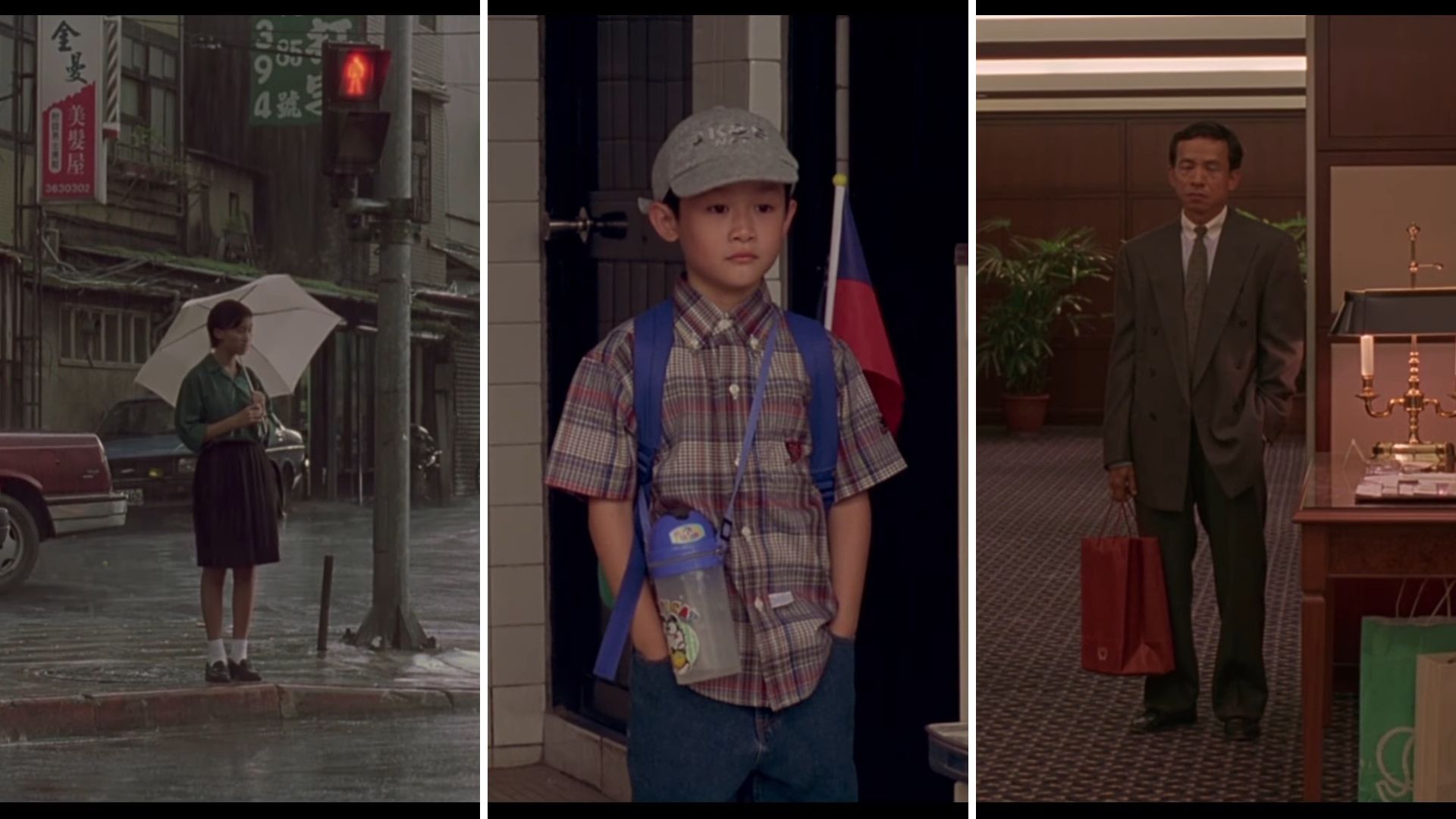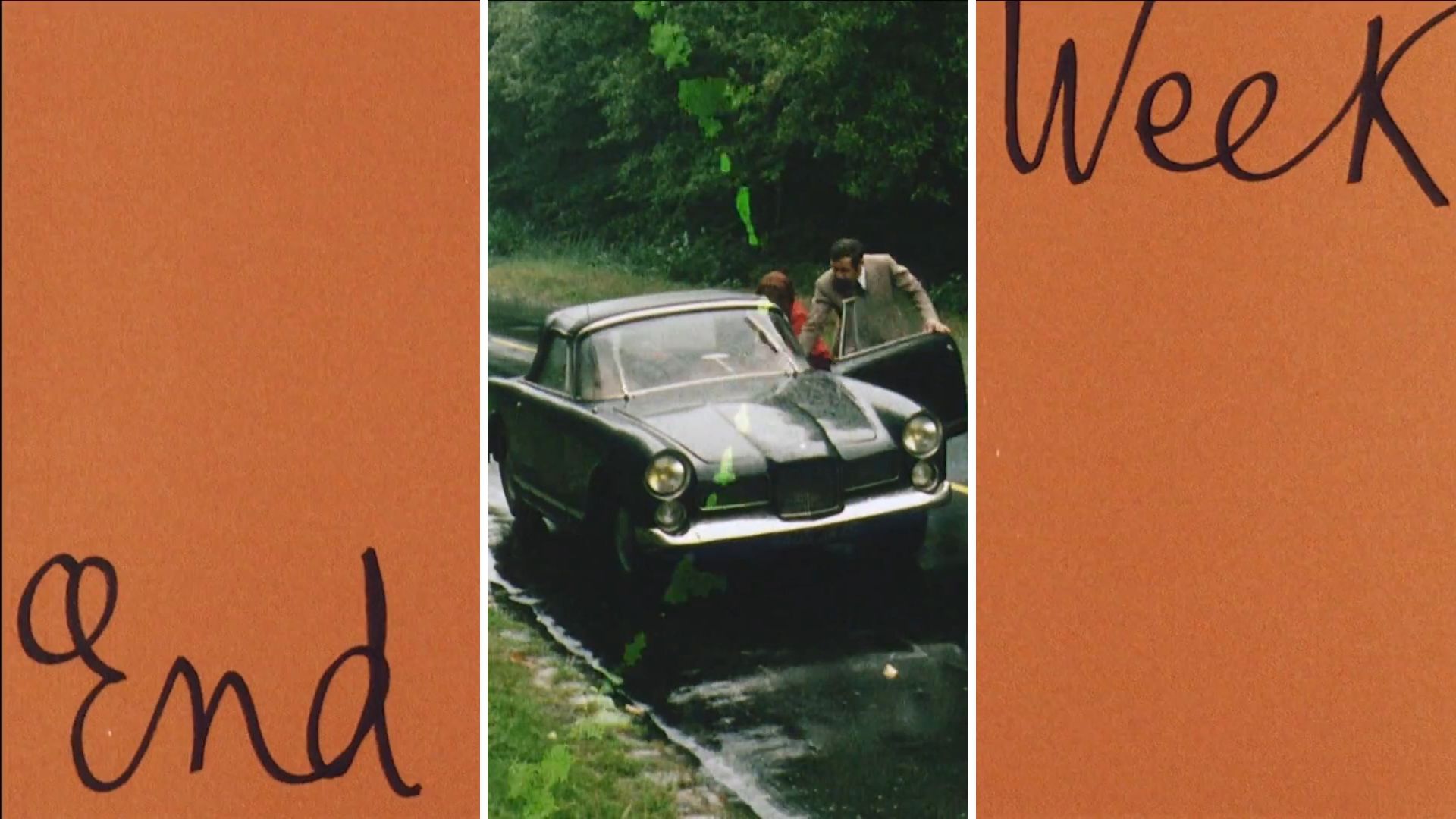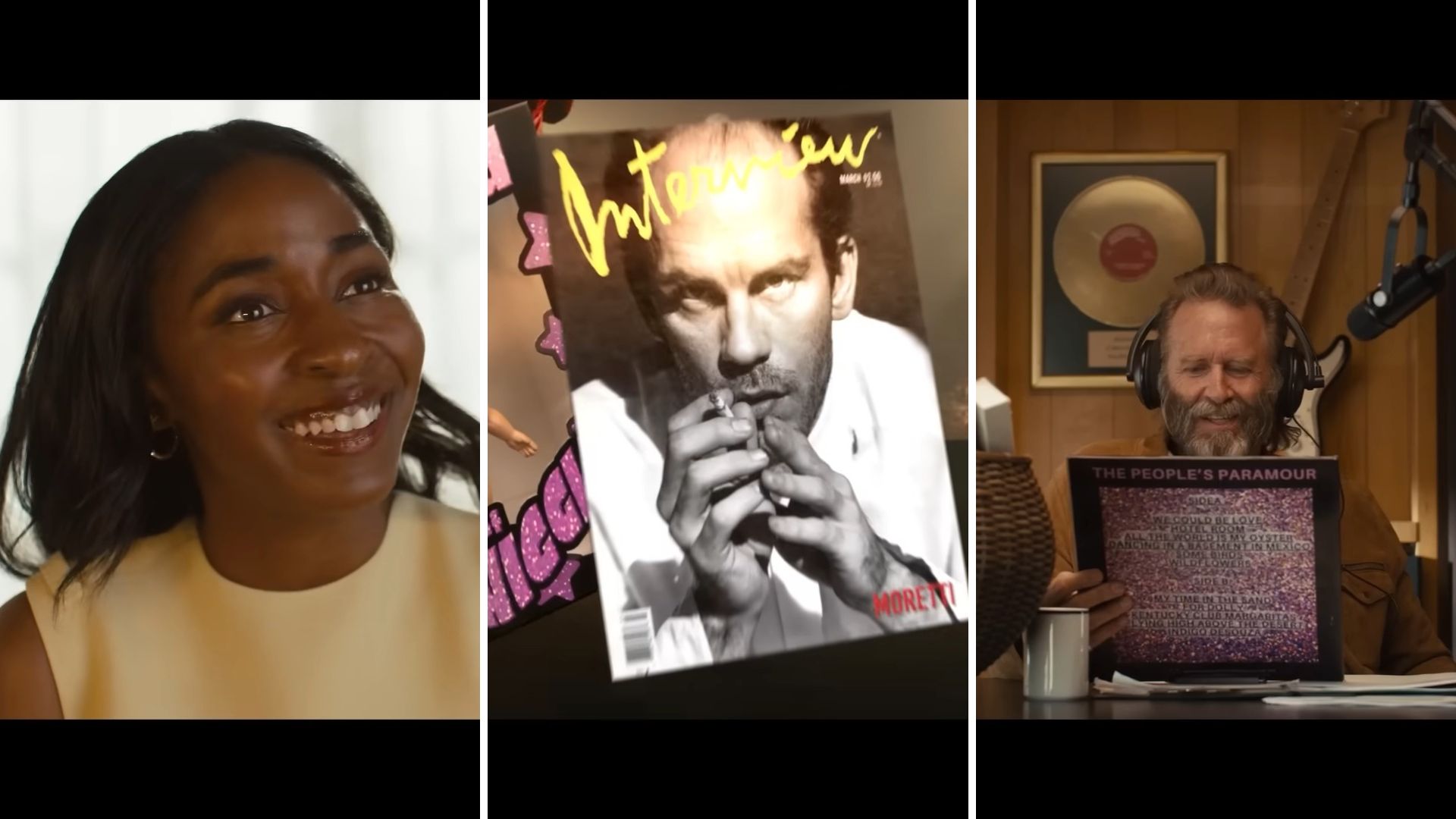
Opus is a visual feast driven by incredible performances and deep-seated themes. This movie is going for it in every sense of the word. John Malkovich chews the scenery every moment he’s on screen. Ayo Edebiri is believable as the only sane person in the bunch. And the supporting cast of Murray Bartlett and Juliette Lewis are providing all the additional flair they are known for.
I was elated coming out of my screening with how bold and interesting this film was. The technical style looks great, the jokes are funny, and the themes are relevant and biting. So I was surprised to see how poorly this movie was performing with critics. Many seem off-put by the visual opulence this film is presenting or don’t enjoy where the narrative finally ends. Opus is a biting commentary on everything from critics to influencer culture and even politics. And I think that may be the reason why Opus is being rejected so hard by so many critics.
The Return
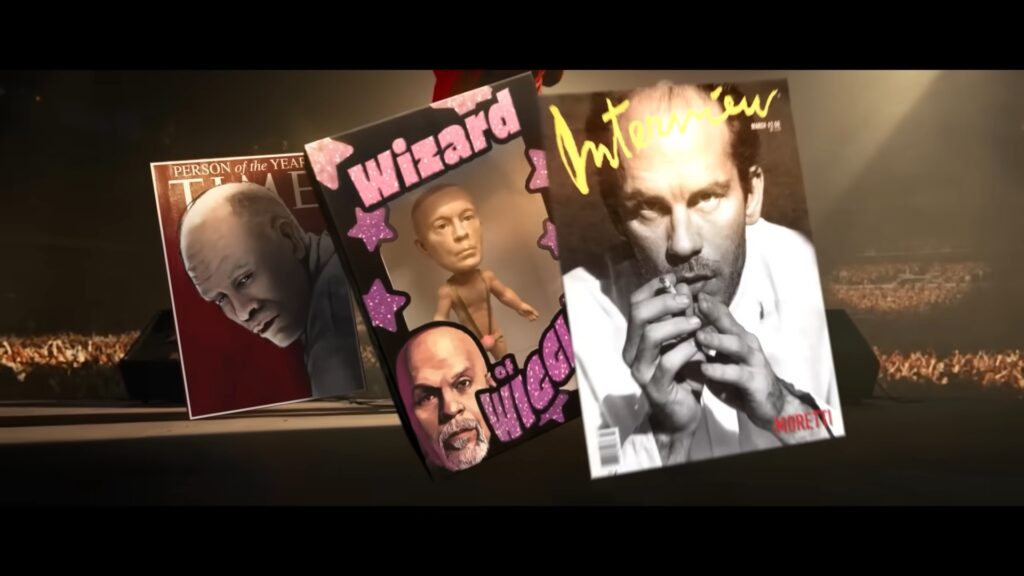
Opus isn’t a perfect movie, but it is certainly a standout and one of the best A24 movies I’ve seen in a while. There are some gripes I have with the pacing, specifically in the second act which hides too many reveals. We are left for most of the movie knowing something is going on, but not quite sure what. It’s standard thriller fodder, but even some hints at a bigger picture would have been nice. Still, this film is grounded by Ayo’s lead performance and Malkovich is such a treat every time he’s on screen that it’s easy to forgive.
The basic premise of Opus is that Alfred Moretti, the Bowie-esque mega popstar played by Malkovich, is finally returning to music after a thirty-year hiatus. To celebrate this momentous once-in-a-lifetime event, he’s invited a select few people to visit his compound for a listening party for his new album. The selected guest list includes a paparazzi, an Instagram star, a daytime TV host, a rival musician, the head of a music magazine, and the lowly new writer at said magazine played by Edebiri.
Musical Genius
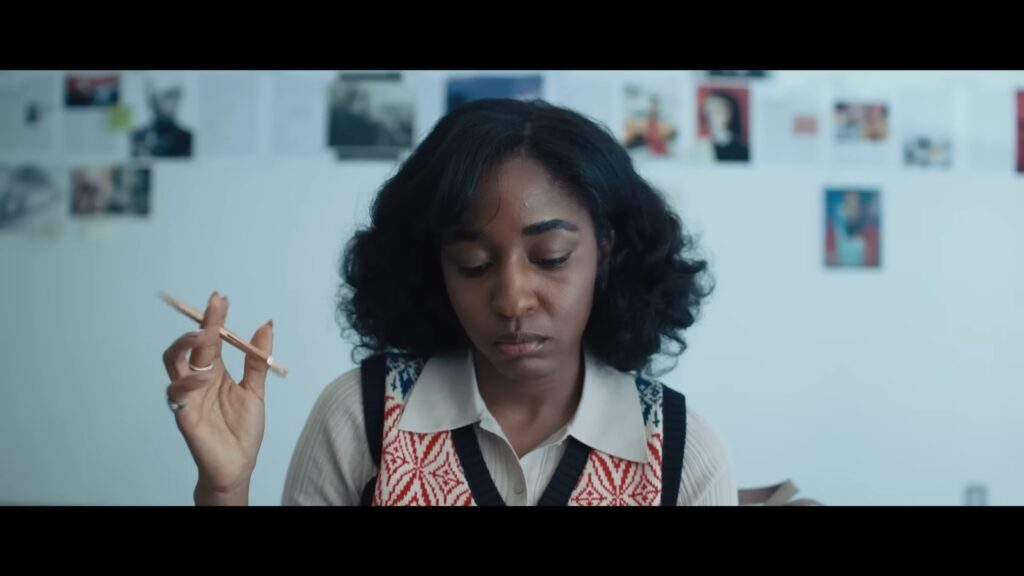
It isn’t too long before Edibiri’s character Ariel Ecton, starts to suspect something is amiss at this extravagant compound. The workers act more like groupies than hired hands and the abundance of children living here gives Ariel pause. The rest of her crew though, long-time industry veterans, are quick to dismiss these quirks as just another part of Moretti’s charm. He’s an eccentric musical genius. Of course, he’s going to have some strange idiosyncrasies.
Opus and Malkovich do a great job portraying Moretti as this Christ-like genius figure. His introduction is him commanding a room with a clearly made-up anecdote of some post-show antics where he loves to name-drop his famous friends. The entire room pauses and stands in awe as he tells this tale of Chuck Norris and Muhammad Ali trying to one-up each other. And they all explode in laughter when he reveals the way too long to get there punchline. We know immediately the type of person he is with this small introduction.
Cults
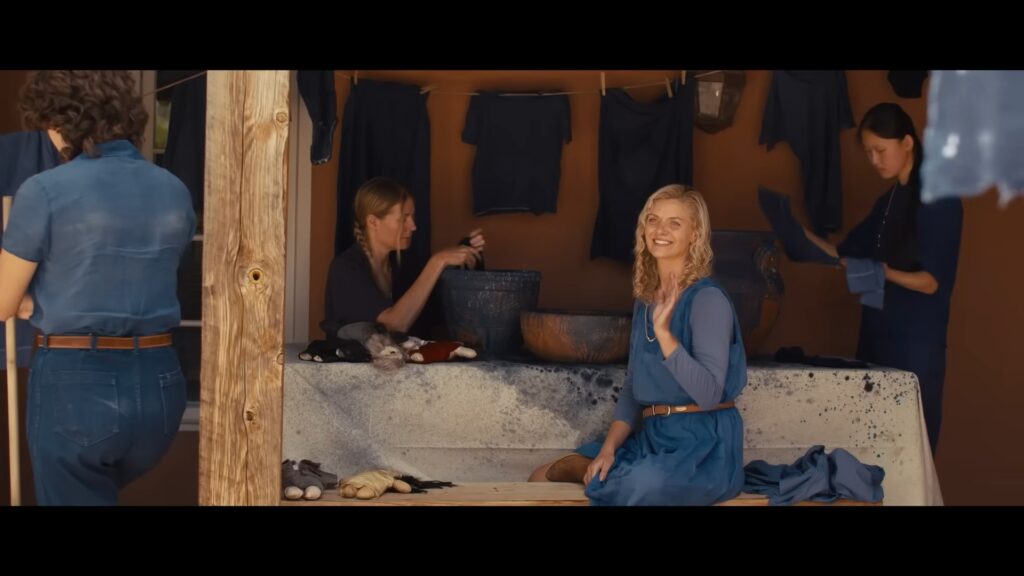
The staff’s behavior is where we get the beginning of the film’s cult narrative. Each guest is assigned a personal assistant who never leaves their side. It’s apparent that these assistants are here for Moretti’s benefit, not the guests. After a few strange requests and unexplained disappearances, Ecton quickly becomes the only person to realize something is wrong at this retreat.
The few guest disappearances are the film showing its hand but in an overly subtle way. All the strange circumstances and odd behaviors, make the second act play like a slasher film without a slasher. We never know exactly what is going on, but we know it’s not good.
The Tragedy of Billie
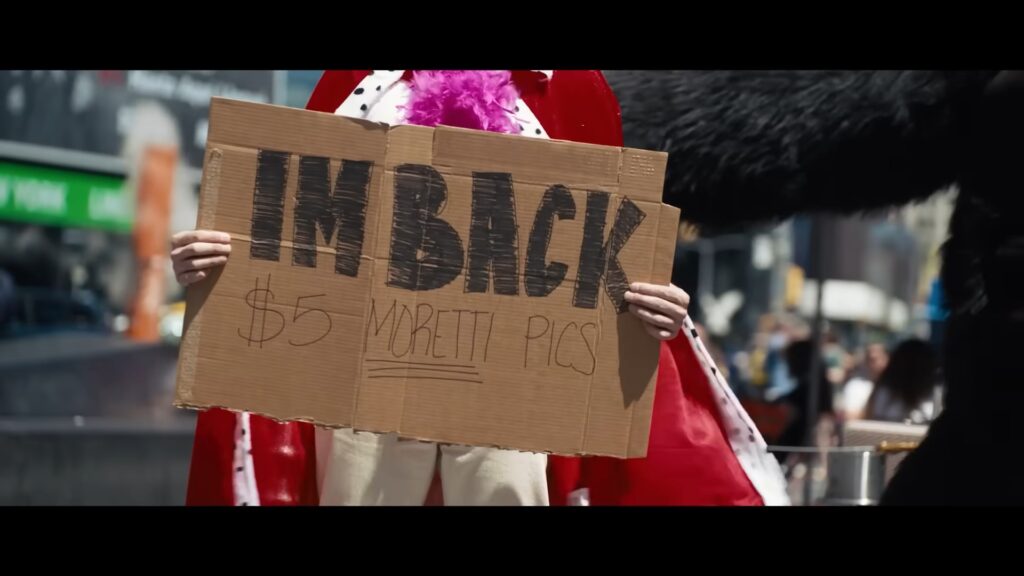
It takes a while to know not just exactly what is going on in this compound, but also what this film is about. Opus is clearly playing with themes of fame and cults, but none of that comes into view until the end of the film. When we learn what Moretti is truly up to, it’s less of a shock and more of an aha moment.
I won’t spoil exactly where the film goes, but the movie is deftly concerned with fame, power, and those who enable it. Not just the cult-like fans or extreme loyalists. But the ones who cover and praise people for their genius in the arts and other ventures. There are definitely overtones of the current presidential administration. While these are becoming more prominent in cinema, Opus gives us a new take. It asks us to question how compliant we are with celebrities becoming thought leaders. We are the ones watching the pieces on them, scourging on the content created in either praise or defamation of them. And in that way, we may be just as culpable in their rise as their own cult followers. At least in the sense that we propel the narrative they use to gain followers.
Cesears Request

I believe this is the main reason why so many critics are having a tough time with Opus. The film isn’t just a critique of celebrity and fame culture. It’s really a critique of the people who enabled this rise to fame. Opus is a shotgun, not a sniper bullet. And everything from influencers to TV hosts are caught in the crosshair. Fairly or not, there is a bit of culpability from everyone when it comes to the rise of egomaniacal celebrities. Even those who are trying so hard to prevent it.
I do want to briefly mention the music as it is fantastic in this film. The original songs are composed by Nile Rodgers and The-Dream, and they absolutely understood the assignment. It’s the perfect amount of catchy and corny. The exact type of music that you could believe would be regarded as that of a once-in-a-lifetime genius. Opus isn’t a once-in-a-lifetime movie, but it’s a great film. It’s able to capture its high-concept themes, provide some entertaining tunes, and it does it all with bright colors and tons of style. It just may hit a little too close to home to those unable to quell their culpability in the power celebrities hold.



